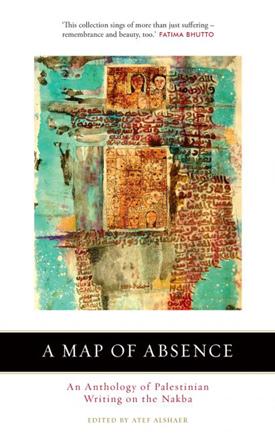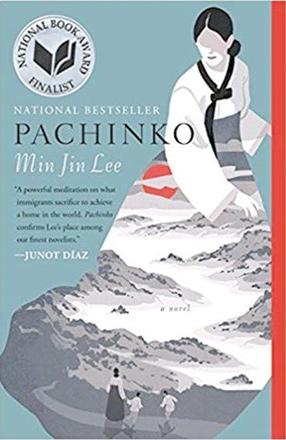You are here
Murder in the desert
By Sally Bland - May 09,2021 - Last updated at May 09,2021

Minor Detail
Adania Shibli
Translated by Elisabeth Jaquette
New York: New Directions, 2020
Pp. 105
Like her first novel, “Touch” (Clockroot Books, 2010), Palestinian writer Adania Shibli’s latest book, “Minor Detail”, stands out for her unusual choice of point-of-view, her focus on the characters’ state of mind, and her understated but particularly poignant sensory descriptions.
Unlike “Touch”, however, “Minor Detail” adds a heavy dose of history and current political reality, speaking directly to Palestinians’ sometimes fatal encounter with Israeli colonisation. In both novels, the characters remain nameless, increasing their archetypal significance.
“Minor Detail” is divided into two sections. The first covers roughly five days in August 1949. A company of Israeli soldiers has been dispatched to the southwest of the Negev Desert, to demarcate the border with Egypt, find “infiltrators” and “cleanse” the area of any remaining Arabs. For several days they see no humans, but then they discover a small Bedouin encampment and — no questions asked — eradicate the men and their camels in a burst of gunfire. They find no weapons but capture a sobbing girl who has survived the carnage. A howling dog follows along as they take her back to their camp, where they humiliate, gang rape, and finally kill her. (The dog seems like a reincarnation of Naji Al Ali’s Handala, bearing witness to unspeakable crimes.)
Told in third-person from the point-of-view of the Israeli commander, this story serves as a powerful metaphor for the Palestinians’ experience of Zionism, as Shibli deftly shapes the narrative to demolish Israeli “security” arguments and show the reality of ethnic cleansing. The commander’s attitude towards the Palestinians is revealed to be callous, racist, perverse and hypocritical: He is contemptuous of the girl yet drawn to her; he verbally forbids his men to bother her yet is the first to violate her. One is reminded of often-repeated refrains of Israeli propaganda where words are one thing, actions another.
More intriguing is what Shibli reveals about the commander’s psychology. The man is obviously obsessive-compulsive as evidenced by his frequently repeated washing rituals, whether to remove the desert sand from his body or the scent of the girl. Does he sense that this environment is hostile and alien to him as an invader? Is he trying to wash away his guilt? Also telling is his treatment of a spider bite on his leg. He meticulously cleanses and wraps it yet otherwise pretends that it is nothing, despite recurring bouts of illness that warn it is poisoning him. Is this festering wound an indication of the persistence of Palestinians remaining in the state he aspires to build — the Achilles heel of the Zionist project?
The first part ends with the commander’s attempt to subdue the howling dog, which provides the transition to the second part where it is keeping a young woman in Ramallah awake at night, some sixty years later. Everything changes except the excellence and emotional impact of Shibli’s prose. The point-of-view shifts to this Palestinian woman whose narrative is first person, present tense. Her only resemblance to the Israeli commander is being slightly off the psychological norm. Yet, while his deviance is criminal, hers is being oversensitive to details and borders, magnifying her human vulnerability, and making her uniquely unqualified to live in the post-Oslo reality with its myriad of new borders, repartitioning Palestine and fragmenting the West Bank. As she explains, “The borders imposed between things here are many. One must pay attention to them, and navigate them, which ultimately protects everyone from perilous consequences… There are some people who navigate borders masterfully, who never trespass, but these people are few and I am not one of them. As soon as I see a border, I either race toward it and leap over, or cross it stealthily, with a step… once I cross a border, I fall into a deep pit of anxiety.” (p. 54)
Her acknowledged inability to evaluate situations rationally and resulting panic attacks keep her largely confined to her office or home until she happens to read an article about the murder in the desert, her attention caught by a “minor detail”: The date on which the young Bedouin woman was murdered is exactly her own birthdate, 25 years later. This coincidence piques her curiosity, “because there was nothing really unusual about the main details, especially when compared to what happens daily in a place dominated by the roar of occupation and ceaseless killings”. (p. 60)
So, she sets out on a quest for the truth, searching for new details which will reveal the murdered girl’s side of the story — how she must have felt, leading to a shattering ending. In gripping, human terms, Shibli confirms what volumes of historical records reveal: In the uneven confrontation between Zionism and the Palestinian people, Israel may have the upper hand in terms of brute force, but the Palestinians have the high moral ground. “Minor Detail” is available at Books@Cafe.
Related Articles
A Map of Absence: An Anthology of Palestinian Writing on the NakbaEdited by Atef AlShaerLondon: Saqi BooksPp.
Everything I Never Told YouCeleste NgNew York: Penguin Books, 2014Pp. 292Celeste Ng has an original, captivating, writing style.
Pachinko Min Jin LeeNew York: Grand Central Publishing, 2017, 479 pp Pachinko, a cross between slot machine and pinball, gives its


















